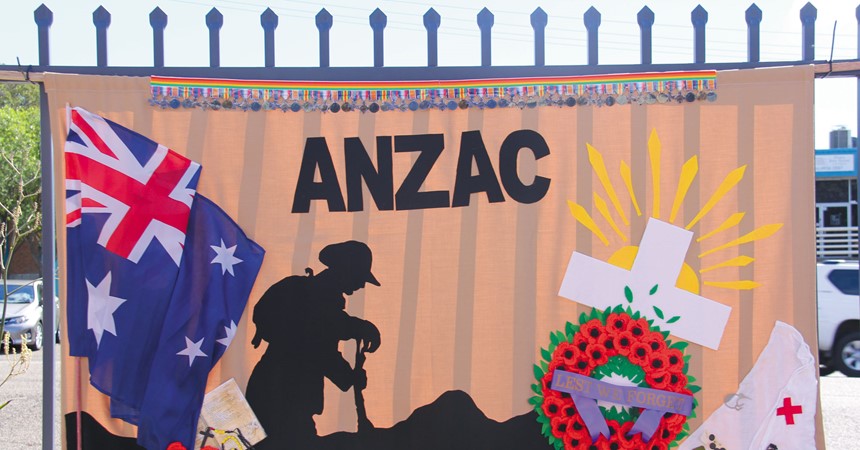For Christians, the crucifixion of Jesus was one of the most significant moments in human history. Leading to his resurrection, it is the very cornerstone of the Christian faith. Christians refer to the day Jesus died as Good Friday and the day of his resurrection as Easter Sunday.
Charles Bean, the official Australian historian of World War I, wrote,
“In no unreal sense it was on the 25th of April, 1915, that the consciousness of Australian nationhood was born.” (Peter FitzSimons Gallipoli p 243).
The landing at Gallipoli happened just fourteen years after Australia became one nation. It is Australia’s most sacred day. Last year we celebrated the centenary of Anzac Day. Anzac = Australian and New Zealand Army Corps.
Easter and Anzac Day are inextricably intertwined. Anzac Day always falls in the Easter season. They have marked differences, yet have much in common.
Both deal with suffering, sacrifice and death. At Gallipoli in Turkey, thousands of soldiers on both sides suffered terribly and died for their causes. At Calvary, Jesus, the Word of God-become-man, suffered terribly and died on a cross as a sacrifice for the world.
At Gallipoli, the Australian and New Zealand troops rejoiced that they were going to war. They wanted to test themselves internationally on the battlefield. At Calvary, Jesus prayed in the Garden of Gethsemane that the ‘cup’ of suffering would be taken from him. Yet each faced the future with courage and conviction.
At Gallipoli, there were tens of thousands of soldiers and, in general, a tremendous spirit of mateship. At Calvary, Jesus was deserted by his own disciples (except for a few, mainly women) and felt completely abandoned.
At Gallipoli the soldiers had rifles, bayonets, guns, as well as other instruments of war to wound and to kill. At Calvary, Jesus was defenceless. He had even told Peter to put away his sword (John 18:11).
Gallipoli was a military defeat, yet it was regarded as a victory for the Anzac spirit as well as for the brilliant way Australian Brigadier-General Brudenell White organised the withdrawal of the troops. It was feared in Britain that they would ‘lose 25,000 men and many guns’ in the withdrawal (FitzSimons Gallipoli p616). In fact, unbelievably, there were no fatalities in the withdrawal.
Calvary was seen as a defeat for Jesus and his followers. Instead it turned out to be the necessary way to his victory. Jesus had said to the two disciples on the road to Emmaus, “Was it not ordained that the Christ should suffer and so enter into his glory?” (Luke 24:26).
As always, there will be observances at Gallipoli and around Australia and New Zealand, of the 101st year since the Gallipoli landing. At Easter, millions of Christians will celebrate the triumph of Jesus over sin and evil and death.
Let us honour both celebrations and rejoice in the reconciliation that has occurred since the original Anzac Day and Easter. It can be summed up in the following:
Those heroes that shed their blood and lost their lives... You are now lying in the soil of a friendly country. Therefore rest in peace. There is no difference between the Johnnies and the Mehmets to us where they lie side by side now here in this country of ours....you, the mothers, who sent their sons from faraway countries wipe away your tears; your sons are now lying in our bosom and are in peace. After having lost their lives on this land they have become our sons as well.
This inscription appears on the Kemal Atatürk Memorial, Anzac Parade, Canberra.
For though the human race is divided by dissension and discord, yet we know that by testing us you change our hearts to prepare them for reconciliation.
Even more, by your Spirit you move human hearts that enemies may speak to each other again, adversaries join hands, and peoples seek to meet together.
By the working of your power it comes about, O Lord, that hatred is overcome by love, revenge gives way to forgiveness, and discord is changed to mutual respect.
From the Preface of Eucharistic Prayer for Reconciliation 11




























































































